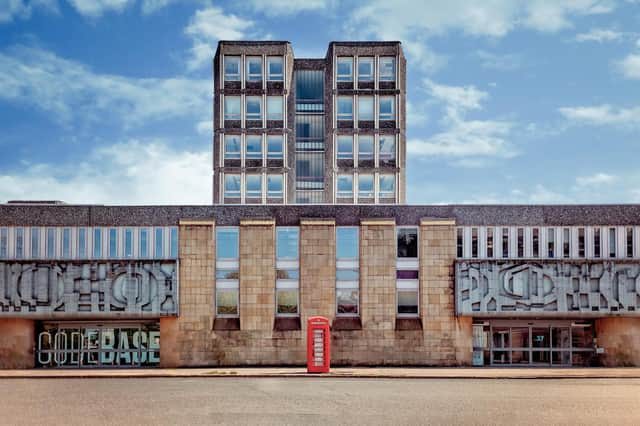The tech ‘Holy Trinity’ still exerta a strong influence


Walking from a client photoshoot this week (socially distanced and outside), I passed Edinburgh’s Informatics Forum and Bayes Centre, Skyscanner’s HQ and then CodeBase all in the space of a mile. It’s a concentration of tech talent that surely rivals many other global cities renowned for their own technology clusters. I was also struck by a tinge of sadness that their hallowed halls lie empty and devoid of people in this time of pandemic.
CodeBase, in particular, has been a melting pot for so many of the great things to come out of Scottish tech. I remember sitting in CodeBase founder Jamie Coleman’s office six years ago, with a stunning view of Edinburgh Castle as a backdrop, with a former business reporter from this newspaper who asked a question along the lines of, “so, what’s actually going on in this place Jamie”?
Advertisement
Hide AdAdvertisement
Hide AdColeman offered to write an opinion piece for The Scotsman a few weeks later in which he put it: “The raw material of this revolution is brainpower and that has always been the core asset of Scotland. The industrial mindset of building bridges and steam engines has transitioned into building complex software. We no longer have the chimneys of the industrial revolution in our cities; our factories are in the cloud.”
Coleman was in the news this week in relation to what has been his main day job in more recent times - as co-founder and COO of LockBody, a biotech startup that has been acquired as a portfolio company alongside a series of other biotechs by US-based Centessa Pharmaceuticals in a $250 million Series A financing deal. In its media announcement, Centessa explains the rationale of the deal: “The high-quality science and entrepreneurial drive within each of the Centessa subsidiaries, combined with this deeply experienced leadership team, has the potential to bring important medicines to patients with speed and efficiency.”
In the Scottish context, we are currently working with two clients who are themselves starting to put Scotland increasingly on the global life sciences map. Edinburgh-headquartered Cumulus Oncology, Europe’s first oncology drug discovery accelerator, was founded in 2017 to create spin-out companies around novel anti-cancer therapies that are fast-tracked through development and target cancers that don’t respond well to existing treatments.
St Andrews-based Eos Advisory led Cumulus’s last funding round, and the investment firm announced a strategic partnership this week that will see Eos invest over £10 million into oncology-focused life sciences ventures founded in Scotland alongside North Carolina-based Kineticos. Not only will the funding accelerate high skill R&D job creation in Scotland, it will also lay the ground for commercial opportunities in the world’s largest healthcare market.
Nick Freer is the founding director of strategic communications agency the Freer Consultancy
Comments
Want to join the conversation? Please or to comment on this article.